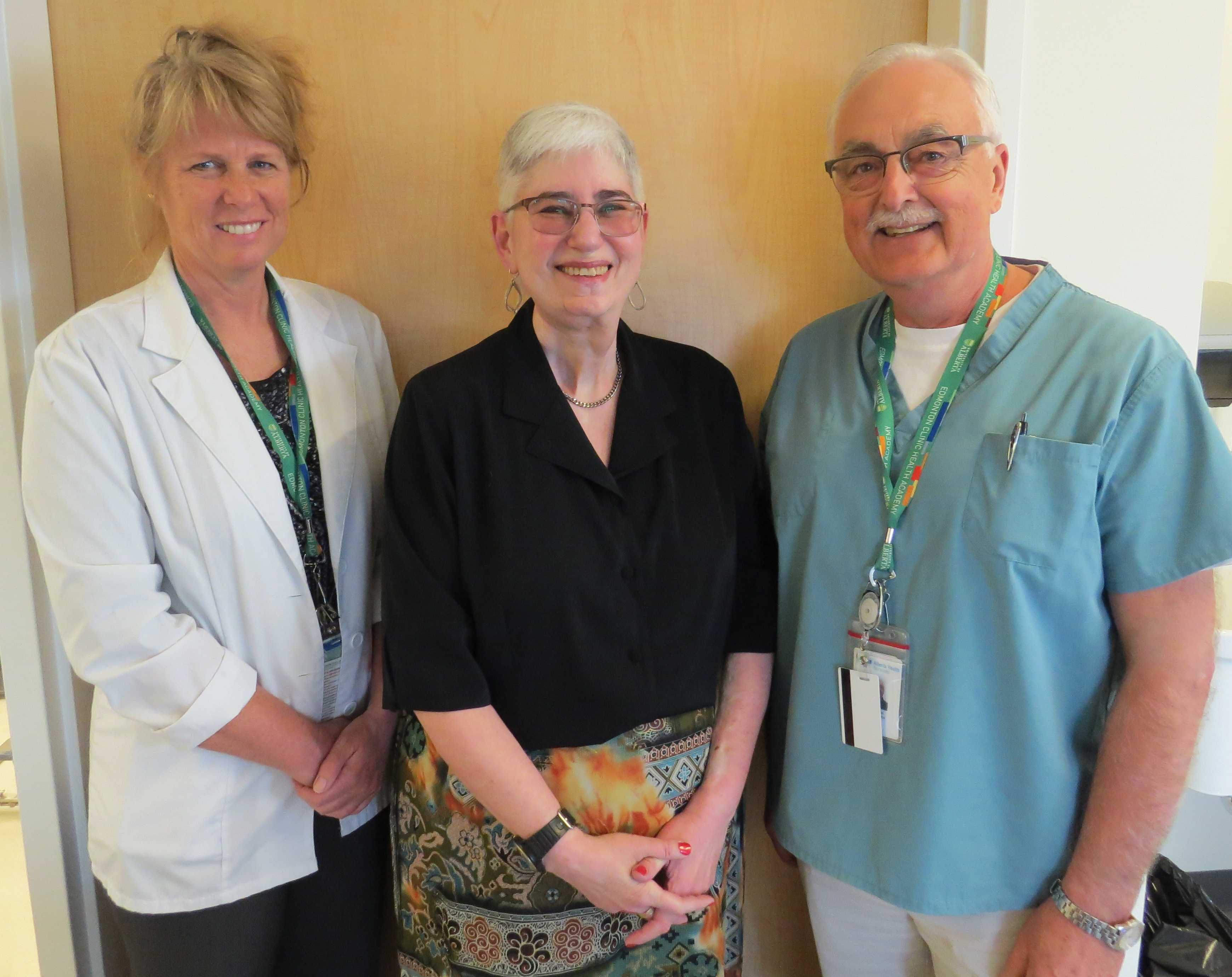
School of Dentistry patient Pam Hofmann (middle) with her oral health-care team, Arlynn Brodie (left) and Tom Stevenson (right)
In 2001, Pam Hofmann found a lump on the side of her neck. It was about the size of a loonie, not painful, seemingly innocuous. But when she was diagnosed with squamous cell cancer, that lump would change her life forever.
Pam had never been a smoker or a drinker, but she did have trouble with allergies. Otherwise, she was very healthy. In addition to her great overall health, Pam was also one of the few people who actually like going to the dentist and dental hygienist. With only six cavities in her life, her oral health was in great condition.
Pam was doing all the right things in life, but that didn't stop her from getting cancer. But because Pam was healthy, she started her treatment on a positive note. And today, she is a head and neck cancer survivor.
"I play a role in my own health care by taking responsibility to do what I can to maximize the results," she says. "It's something I feel I've been doing all my life."
Treatment for squamous cell cancer involves surgery, radiation or both. Pam had two surgeries over two years, as well as 30 radiation cycles within seven weeks. One month before her treatment, she had an oral evaluation―something many people don't know is a requirement before receiving any cancer treatment.
"We never want to downplay the severity of any type of cancer, but there are certain things that can help lessen the impact of cancer treatment. Good oral health is just one of those things," says Tom Stevenson, division head of oral surgery in the School of Dentistry at the University of Alberta.
See your dentist or dental hygienist regularly! They are an important part of your health-care team.
Because Pam had good oral health, the doctors were able to proceed with treatment without delay. Others may not be so lucky.
In some cases, teeth may need to be extracted and treatment delayed. Dental treatment after radiation can be complicated by slow healing and the risk of infection.
Chemotherapy and radiation wreak havoc on many areas of the body, including problems with teeth and gums, the lining of the mouth and the glands that make saliva. More than one-third of people treated for cancer develop complications that affect the mouth.
Pam did OK. Her oral health complications were mild, but she does still suffer from dry mouth, TMJ, sensitive teeth, thrush and loss of taste.
Pam has good days and bad days. When she has a bad day, or can't do something, she doesn't say "not ever" or "not never." What she says is "not today." Her positive attitude has contributed greatly to her recovery. Cancer has changed her life forever, but Pam is a survivor.